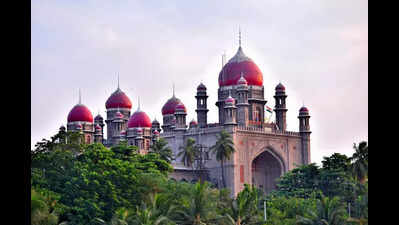Temple land row should be resolved by endowments tribunal: HC | Hyderabad News

Hyderabad: Justice CV Bhaskar Reddy of the Telangana high court has held that it is the endowments tribunal—not the high court—that should adjudicate ownership claims when both the endowments department and private individuals, such as temple priests, assert title over the same land.The court directed Arutla Srinivasa Charyulu and Arutla Narasimha Charya, two priests from Odela village in Peddapalli district, to approach the endowments tribunal for relief in their dispute over more than 10 acres of land reportedly belonging to Sri Sitaramachandra Swamy temple and Sri Anjaneya Swamy temple.The ruling came as part of the disposal of a writ petition filed by the two petitioners, who claimed that the land in question was ancestral property passed down from their father, the late Narahara Charyulu. They argued that their family’s traditional role as priests of the temples did not affect their rights as private landowners. In support of their claim, they cited their names—along with their late father’s—being recorded as pattadars in revenue records, and the issuance of valid pattadar passbooks in 2018.The petitioners alleged that the revenue and endowments departments, without issuing notice or conducting any inquiry, had unilaterally replaced their names with that of the temple deities in official land records. As a result, they claimed to have been denied agricultural benefits provided by the govt.Bhukya Mangilal Nayak, counsel for the govt and endowments department, refuted these claims. He argued that mere service as temple priests does not confer ownership rights over temple lands. According to the state, the disputed property has long been classified as temple land, and the petitioners had failed to contest this status for years. Moreover, the govt emphasised that the proper forum to resolve such disputes is the endowments tribunal, and not the high court under Article 226 of the Constitution.Agreeing with the state’s contention, the court clarified that entries in revenue records such as pahanis do not establish ownership rights. They serve only for classification purposes and do not override the legal framework governing temple lands under the Telangana Charitable and Hindu Religious Institutions and Endowments Act, 1987, the court said.The high court concluded that the matter falls squarely within the scope of section 87 of the Endowments Act, and that the endowments tribunal is the appropriate authority to determine ownership and classification issues related to temple property. It further clarified that the tribunal’s decision would be made independently, without being influenced by the observations of either the district collector or the high court.
















